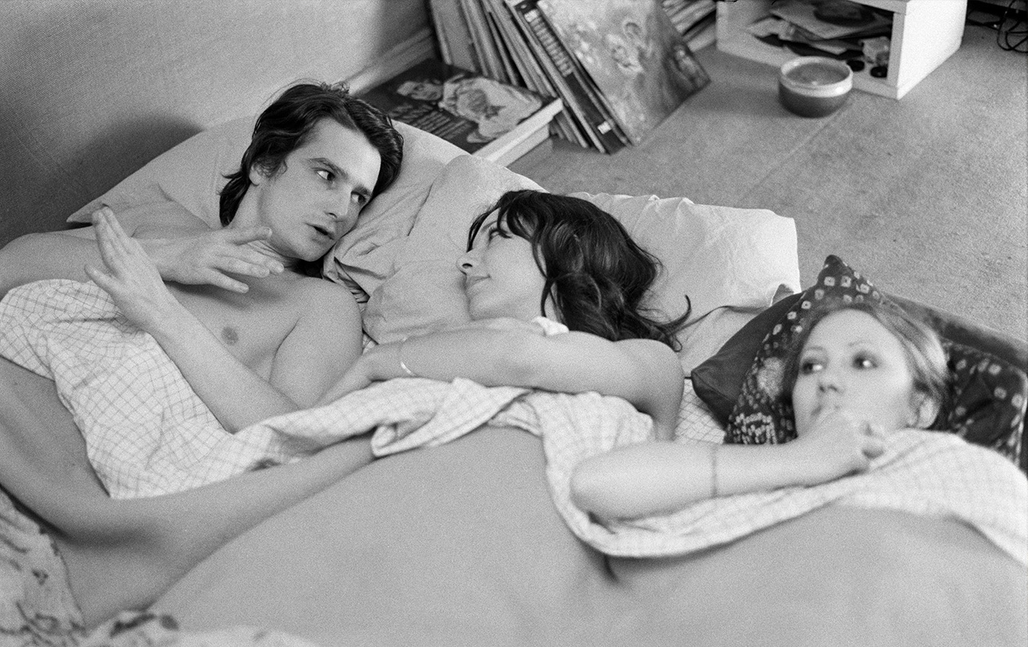
La Maman et la putain (The Mother and the Whore), a majestic return for Jean Eustache’s innovative masterpiece

Fifty years after the Grand Prix won by Jean Eustache and with a few weeks to go till it returns to cinemas in France, La Maman et la putain (The Mother and the Whore) is returning to the Festival de Cannes in a striking restored version. Françoise Lebrun, one of the actresses in the love trio that makes up this autobiographical masterpiece with Jean-Pierre Léaud and Bernadette Lafont, looks back at its origins.
At what stage of his career was Jean Eustache in when he conceived this film?
He had already earned some recognition with the mid-length film Santa Claus Has Blue Eyes (Le Père Noël a les yeux bleus) (1966). After The Pig (Le Cochon) (1970), a documentary that helped make his reputation, he called me to ask if I'd agree to perform in his new film. I accepted without knowing what it was about or who the other actors were.
What was the starting point for the script?
His actors! He imagined it with three names in his head: Jean-Pierre Léaud, Bernadette Lafont and me. One day he said that he wouldn't have carried out this project if one of us had said no. I also don't see how anyone other than Jean-Pierre Léaud could've carried this feature film. There was a reason he was chosen.
Jean Eustache brought a lot of his personal history to his films. Why?
There was something with him that was like an internal necessity. La Maman et la putain (The Mother and the Whore) was, at this exact moment in his life, an absolute necessity. Moreover, the shooting was in line with this idea of necessity and intensity.
What do you mean?
The dialogue was set in stone and he wanted us to stick to it. But I remember the shoot being really easy. I knew what he was looking for in terms of cinema and, unconsciously, I was giving back to him everything he had taught me. If Jean offered me this role, it's because he knew I'd be able to interpret it as he had imagined it, by keeping distance from my character.
“The film is about a period where there was an incredible energy that dominated the spirit of the times.”
The film describes a very singular period: Paris after May 68…
It's about a period where there was an incredible energy that dominated the spirit of the times and to tell that story Jean used a very inventive form that Jean-Luc Godard had initiated. What was great about the French New Wave was that it left in its wake a huge appetite for cinema, a sort of intensity of life that was circulating and that had hatched when Jean was imagining the film. He clearly benefitted from it.
Was there a before and an after for Jean Eustache's career?
The shooting of My Little Loves (Mes petites amoureuses) (1974), which was a project that he felt really strongly about but which he had not been able to shoot for lack of financing, didn't have the same impact. The weight of La Maman et la putain (The Mother and the Whore), and the fact that one far too often reduces him to this film, led to a wellspring of inspiration maybe drying up.
Why is his career too often reduced to this feature film?
Because it was a kind of monster. An entire aspect of his career was masked by La Maman et la putain (The Mother and the Whore). Whenever I'm invited to present it, I advise the audience to go see My Little Loves (Mes petites amoureuses). For me, they're two sides of the same coin.


